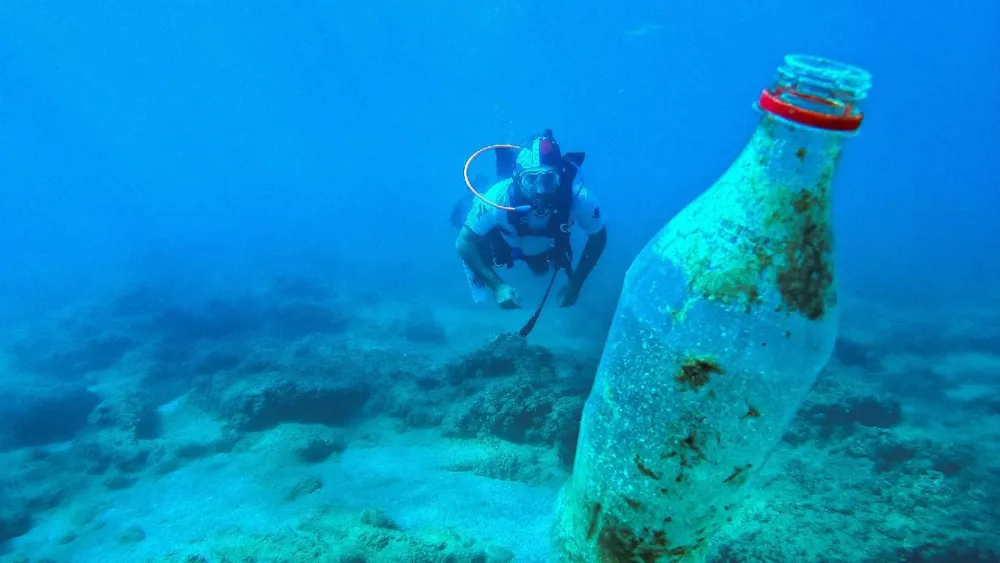Piraeus Launches Strategy to Cleanse Seabed Pollution

Greece is taking decisive action against marine pollution with its newly launched Piraeus pollution strategy, aimed at restoring the condition of coastal waters through the collaborative efforts of local volunteers and support from the European Union.
Europe's aquatic environment is increasingly burdened with plastic waste, prompting Greece to respond proactively. A recent report from the European Environment Agency has flagged a critical rise in marine pollution levels, which endanger ocean biodiversity and threaten tourism as well as coastal economies. In response, Greece has initiated an extensive underwater cleanup operation at Piraeus, the most significant and active port in the country.
Once a thriving habitat teeming with marine life, the seabed below Piraeus is currently overwhelmed by plastic refuse, ghost nets, and various forms of debris. Determined volunteers and skilled divers equipped with underwater drones and remote-operated robots are plunging into the depths to salvage their waters.
Katerina Topouzoglou, founder of the environmental group All For Blue, acknowledges the multifaceted challenges inherent in seabed cleanups, stating, "The challenges we face during seabed cleanups are many and complex. We need expensive equipment, constant training, and unfortunately, most of what we find comes from land—bottles, bags, and trash from tourism."
This undertaking is part of a larger initiative endorsed by the European Union, which aims to achieve cleaner seas by 2030. Local actions such as the cleanup in Piraeus resonate with the EU's objectives to combat marine litter and protect fragile underwater ecosystems.
The campaign has also garnered participation from local fishermen. Konstantinos Giannakopoulos of Enaleia, a non-profit organization dedicated to mitigating plastic waste and overfishing, reveals that his team collaborates with coastal fishing communities to collect plastic debris during routine fishing trips.
"Instead of throwing it back, they bring it ashore," Giannakopoulos explains. "We then partner with recyclers to give this waste a second life—turning pollution into products and supporting the circular economy."
This initiative offers dual advantages: cleaner seas alongside bolstered community engagement. This grassroots movement epitomizes the ethos of the EU's Green Deal, which targets the goal of making Europe climate-neutral by 2050.
Yet, Topouzoglou asserts that lasting transformation requires more than mere policies. She highlights that "Environmental education and local involvement are key. When people understand the problem, they become part of the solution."
With each ghost net and every discarded plastic bottle extracted from the waters, a wave of optimism is beginning to surface in Greece's maritime regions. What originated as a localized cleanup effort in Piraeus is gradually evolving into a broader movement with the potential to safeguard the seas.
Read These Next

Living with Vitiligo: Strength Amidst the Spots
An animator shares her vitiligo journey in a documentary, highlighting challenges and the need for empathy towards those affected.

AI's Impact on Education and Homework Standards
The commentary discusses the implications of AI on education, focusing on a recent survey that suggests reducing homework to combat AI misuse.

The Promising Future of Natural Food Colors
This article discusses the significant shift from artificial food colors to natural alternatives, emphasizing the role of innovation in the food industry driven by consumer health consciousness. It highlights the efforts of companies like Fermentalg and Sensient in developing vibrant natural dyes and the challenges they face in matching synthetic colors.
